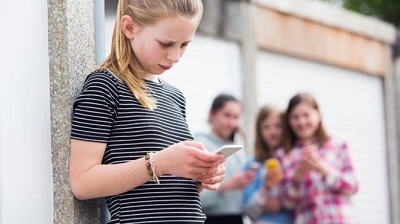Psychiatrists are being urged to ask children with mental health issues how long they spend online and what they use social media for.
Questions about technology should be a routine part of assessments, the Royal College of Psychiatrists says.
It is concerned about how time spent online impacts on mood, sleep, diet and behaviour.
The College’s advice comes as evidence grows of a possible link between harmful content or time spent online, and poor mental health.
When assessing children, psychiatrists are being advised to think about:
Harmful content, especially material which could impact on an existing mental illness, such as self-harm photos or images which promote eating disorders
How problematic technology use could be related to problems with sleep, poor academic performance, low mood and behavioural or eating difficulties
How conditions such as depression or eating disorders may make children more likely to spend too long online or use technology in a way that is harmful
The Royal College of Psychiatrists recommends that children stop using technology at least an hour before going to bed, and avoid using technology at mealtimes.
This is a view echoed by the Chief Medical Officer in her recent guidance on social media.
They are announcing plans for an independent regulator which would enforce a new statutory ‘duty of care’ on social media companies.
This comes after growing concerns about graphic online content, including material featuring suicide and self-harm.
Doctors said: “Although we recognise that social media and technology are not primary drivers of mental illness in young people, we know that they are an important part of their lives and can be harmful in some situations.
“As a frontline clinician, I regularly see young people who have deliberately hurt themselves after discussing self-harm techniques online.
“Clinicians recognise the well-known phenomena of young people copying each other’s harmful behaviour while on in-patient units, but it’s even more worrying to see this replicated in the online world where audiences are so much bigger.”
they added: “We’re also finding that some young people report being recommended harmful content; for example, links to websites encouraging weight loss or displaying self-harm after searching for, or clicking on, similar content just once before.”
Social media plays a big part in everyday life for most children and young people, but it should act as a wake-up call when leading psychiatrists say online activities now need to be considered when assessing youngsters’ mental health and wellbeing.
Lara Kh.

